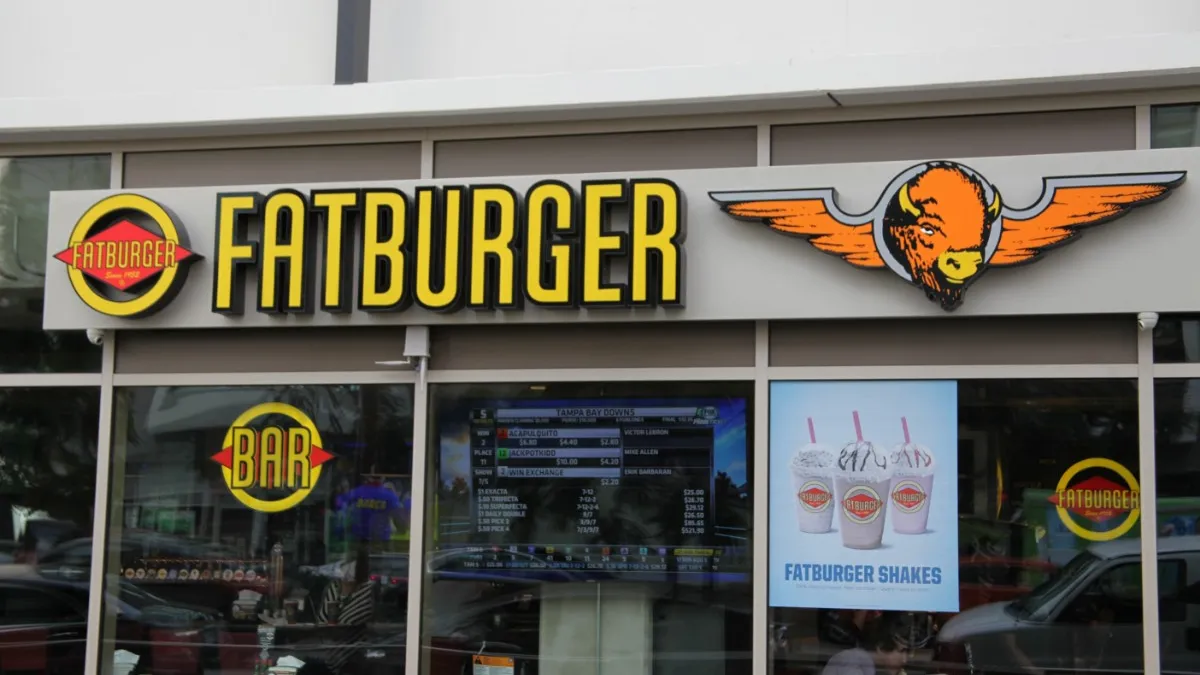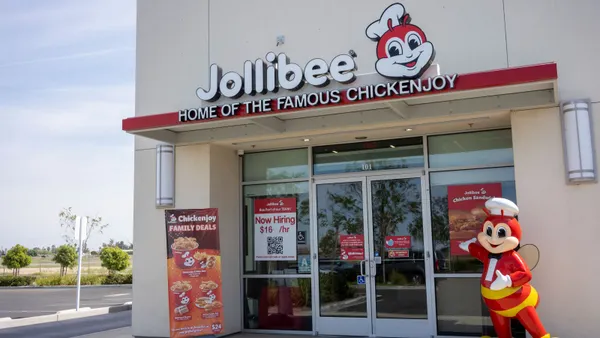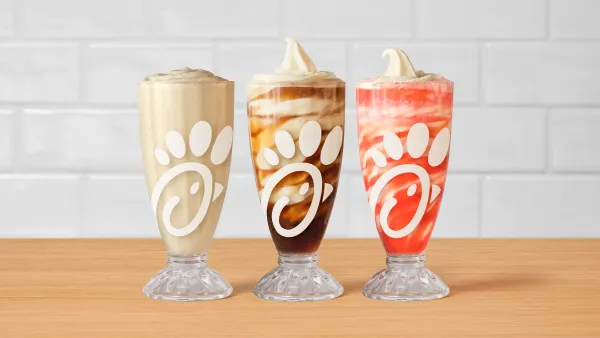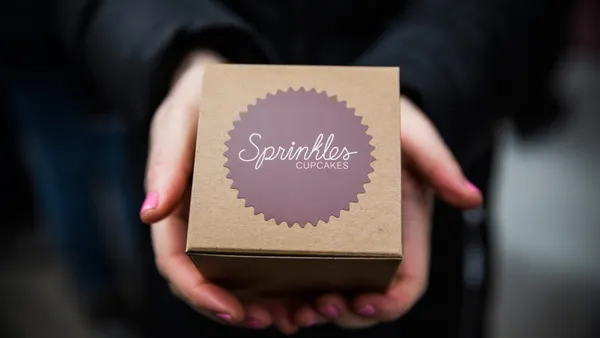Dive Brief:
- FAT Brands, which owns seven restaurant concepts, plans to add 10 co-branded restaurants for its Fatburger and Buffalo’s Express brands. The new units will be developed this year in California, Arizona, Texas, Pennsylvania and Virginia, according to a news release.
- According to the company, the made-to-order burgers, milkshakes and fries Fatburger concept complements the chicken wings concept.
- FAT Brands also opened a co-branded Fatburger/Buffalo’s Express location in Dubai — its second in the United Arab Emirates.
Dive Insight:
FAT Brands has been on a roll as of late, driven especially by its Fatburger segment which is comprised of both Fatburger and Buffalo’s Express restaurants. During the company’s most recent earnings report in November, this segment achieved a 4.7% systemwide same-store sales growth, and a 7.8% jump year-to-date.
The company seems to be finding its sweet spot with a diversified portfolio spanning a number of categories, including burgers, chicken wings, steakhouses and Mediterranean. The company is leveraging this diversification to grow its "FatBuffs" concepts.
Co-branding is nothing new. Yum Brands started doing it around 1992 with its then-five brands and called the idea a one of the biggest opportunities to drive sales and profits in the industry since the drive-thru window, according to Entrepreneur. Dunkin' Brands also has been been successful with its Dunkin and Baskin-Robbins brands.
A co-branding approach offers a number of benefits, building maintenance and real estate cost savings among them. They're also appealing for groups of diners who may not have the same cravings or tastes. Don't like burgers? No problem, have some wings. FAT Brands CEO Andy Wiederhorn said in a blog post that a co-branded approach gives the company flexibility and efficiency, adding that co-branded locations tend to have a +25% profit margin.
But Wiederhorn also cautioned that co-branded brands have to make sense in order to succeed. Although Yum Brands no longer owns Long John Silver, the seafood brand was a drag on revenues when it was part of the company's co-branded strategy. It also was weird fit, for example, with Pizza Hut pizza.
This is where FAT Brands seems to have an advantage. Burgers and wings very much complement each other. Some concepts are entirely focused on burgers and wings, such as Crave Burgers and Wings and Quickie's Burgers and Wings.
FAT Brands is clearly going all in on the co-branded locations. Of its 300 locations, 72 are co-branded Fatburger/Buffalo's Express restaurants. It's unknown how many more co-branded locations the company is aiming for as part of its 300-unit development plan that is underway, but this 10-unit announcement is a start.
During its most recent earnings call, CEO Andy Wiederhorn said the company is actively working on several additional acquisitions. The company also is integrating its newest concept, Hurricane Grill & Wings, so there doesn't seem to be an end in sight for its co-branding strategy.











